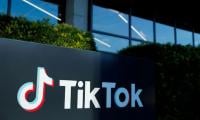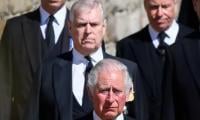Union, made a pitch for stricter gun control laws.
“It is insane the number of guns and the ease of getting guns in America,” Riley said. “It’s not that people should not carry guns and all of that, it’s just that there are so many of them and the ease of them and there is no accountability.” President Barack Obama, in an interview taped on Friday, blamed the powerful gun-rights lobby group the National Rifle Association and an apathetic American public for the failure to implement new gun control measures.
After a school shooting in Connecticut in December 2012, Obama proposed more background checks for gun sales and pushed to ban more types of military-style assault weapons and limit the capacity of ammunition magazines. But the measures failed to win passage in the US Congress.
The church shootings were the main topic at other Sunday services in Charleston, a city sometimes dubbed “The Holy City” because of its multitude of historic churches.At the predominantly white-membership St. Michael’s Church, founded in the 17th century, the Reverend Alfred Zadig Jr. said he did not know any of the victims and asked for forgiveness “for failing to be a pastor who reaches out beyond my world.” “You and I are so good at compartmentalising grief,” Zadig told his congregation about a mile from massacre site.
“Today I’m asking you to feel the unthinkable pain ... This is not God’s will. God did not ordain this event to happen to make a point about racism.”
Outside the Emanuel AME church, bouquets, teddy bears and balloons covered the sidewalk while hundreds of people lined up to mourn, sing hymns and leave memorials.
Thousands of handwritten messages covered white banners at the church’s entrance, reading “God Bless,” or “Thank you Sen”.
Rev. Clementa Pinckney. You will 4ever be an inspiration,” referring to the church’s pastor, a state senator who was one of the victims.
The victims’ names, written on white ribbons adorned with roses, bedecked one of the church’s gates. Another gate held a black shirt that read: “Do you believe us now.” Joseph Kovas, 19, was hoping to make it inside the church for Sunday’s service.
“We wanted to come to show our presence and prayers to the community. The way they have been affected is tremendous,” he said. “The people have come together in Charleston and that is great testament to this city.”
Protesters attend a rally against South Korea's impeached President Yoon Suk Yeol, who declared martial law, which was...
A self-proclaimed witch lights a candle before a ceremony. — Reuters/FileLUSAKA: Zambian police said they have...
Italian Deputy Prime Minister Matteo Salvini speaks to media upon his arrival at Pagliarelli bunker courthouse for a...
Indian sand artist Sudarsan Pattnaik creates a sand sculpture of the missing Malaysia Airlines flight MH370 on Puri...
A Taliban soldier walking past veiled women.— AFP/File GENEVA: Special envoys and representatives for Afghanistan...
Fireworks are seen over the Sydney Opera House and Harbour Bridge during New Year's Eve celebrations in Sydney,...







